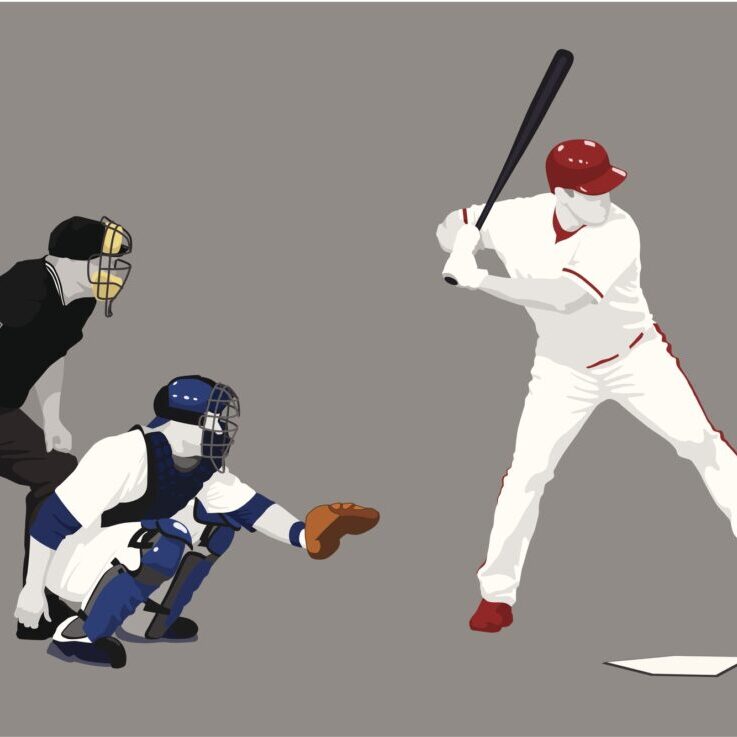Insights < BACK TO ALL INSIGHTS
Say it Ain’t So, Oh!
Say it Ain’t So, Oh!
By: James Trusty
The Shohei Ohtani betting scandal has receded from view for the moment, but its brief surfacing last week provided fundamental guidance on how not to manage a crisis faced by a professional athlete, while also giving rise to some serious issues for Major League Baseball (“MLB”) to address in the near future.
Lawyers and publicists in the niche world of crisis management unofficially swear a Hippocratic oath to “first, do no harm” to their client. The challenge to their success is an inherent one – the crisis team is always activated either because of an impending scandal or one that has already caught fire. This means that the protective team is necessarily in a reactive mode, and frequently one in which “the story” is already out, to the detriment of the player who they represent.
When your client is literally the face of MLB – considered a modern-day Babe Ruth – the accusation of a gambling connection is a big one. Shohei Ohtani is likeable, immensely talented, and the recipient of a 10-year, $700 million deal with the LA Dodgers. When the story broke that his long-time interpreter, Ippei Mizuhara, had racked up enormous gambling debts to an illegal bookmaker in Los Angeles, the most critical emerging “fact” was that Ohtani had apparently paid $4.5 million of Ippei’s gambling debts. Logical questions ensue.
As a starting point, let’s recognize that unregulated gambling, such as an illegal bookmaking operation in California, generally leads to less visibility but also zero protection for the betting public if things turn south. It also means, in practical terms, that if prosecutors and investigators start plowing through the betting records, they will gleefully publicize names associated with pro sports or the NCAA “for public awareness,” also known as high readership of their press releases. In this case, the apparent gambling payments were leaked out after a raid on the bookmaker’s home revealed wire transfer receipts in Ohtani’s name.[1] Team Ohtani hired a crisis-communications expert who, on March 18, promptly confirmed to ESPN that Ohtani admitted to having “sent several large payments” and that it was “the maximum amount [he] could send.” This was unforced error #1, to blend in an apt phrase that used to reside on the tennis courts.
Unforced error #2 took place when that same spokesperson lined up Mizuhara for a 90- minute interview with ESPN. Mizuhara took full responsibility for the gambling but did not appear to address the issue of Ohtani’s knowledge and/or payments. The crisis management spokesperson then said Mizuhara has it all wrong, and the next day a new lawyer for Ohtani issued a statement that “Shohei has been the victim of a massive theft and we are turning the matter over to the authorities.” By March 20, Ohtani’s spokesperson claimed that the player had literally just learned of the theft from his bank account at Ippei’s hands. The bungling of the issue of Ohtani’s knowledge of the reimbursements is unforced error #3, or better yet, “Strike Three” for the at-bat of crisis managers.
On March 25, Ohtani provided a somber statement in which he announced his complete innocence, from the placing of bets to the payments to a bookie. In other words, Mizuhara was not only to blame for the gambling, but for wrongly accessing Ohtani’s bank account and surreptitiously repaying the massive bookie debts.
The problem with the evolving story is that a crisis management “expert” severely damaged the client’s credibility long before Ohtani spoke to a packed room of reporters about his victimization. The substance and delivery of Ohtani’s comments was fine, with the possible exception of its conspicuous silence on how Mizuhara could have had access to, and the ability to make wire transfers from, Ohtani’s bank account. But Ohtani’s performance suffered primarily from the fact that it represented a dramatic departure from the spokesperson’s quotes and comments a week earlier. The two versions are incompatible, and that simply cannot be the way to manage a crisis.
The reason why this error occurred has a lot to do with news cycles and the nature of crisis management. For a big-name star like Ohtani, a bad-news story travels fast. The media was swarming this story and it was the lead headline in the sporting world. That frenzy creates pressure to learn the details and scoop the opposition media platforms. But none of that need-for-speed should ever dictate how an internal investigation is conducted by the player’s legal team. They cannot let themselves be “sped up” by breathless journalists or various accusers on social media. Getting the wrong story out, even if it is not an admission of criminal culpability, is a violation of that all-important “do no harm” oath. Sometimes a brief pause to simply gather the facts, interview pertinent people, and develop a coherent and consistent strategy is worth a couple of days of “why haven’t we heard?” flogging by various commentators. The rush to get in front of the story, in this case, was a distinct disservice to the client.
Buried behind bad information management are some serious, impactful issues. Even if Ohtani faces no criminal jeopardy in this matter, will MLB look past the possibility of proxy betting, or will the conflicting stories somehow resolve favorably to the superstar? Will Ohtani or Mizuhara be dragged into the investigation and prosecution of an LA sports bookie, including the potential for providing live (and possibly televised) testimony? Will MLB lead a charge against prop betting, which some experts view as the most insidious (but also most popular) form of sports betting, in that the individual subject of the bet does not have to affect the bottom-line of the team’s winning or losing.
The full impact of this situation is yet to be seen, but if Mr. Ohtani is to retain his highly favorable—and profitable—image, his crisis managers will need to play flawlessly for the rest of this game.
[1] https://www.cbssports.com/mlb/news/shohei-ohtani-gambling-scandal-timeline-history-with-ippei-mizuhara-and-events-that-led-to-mlb-investigation/





